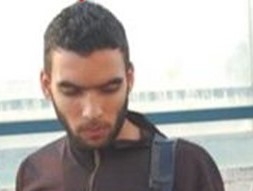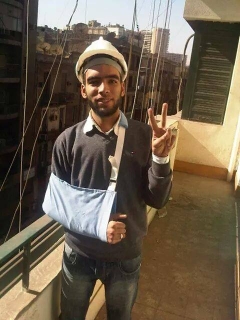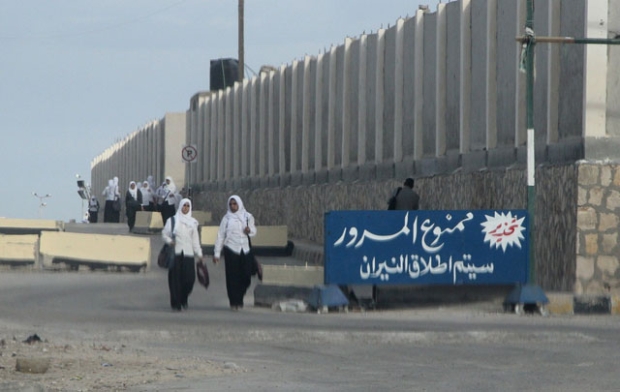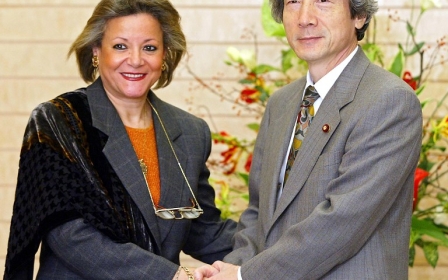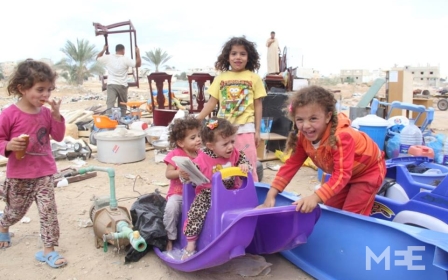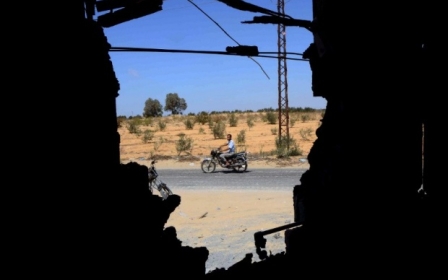Who was Egypt's Omar Mustafa?
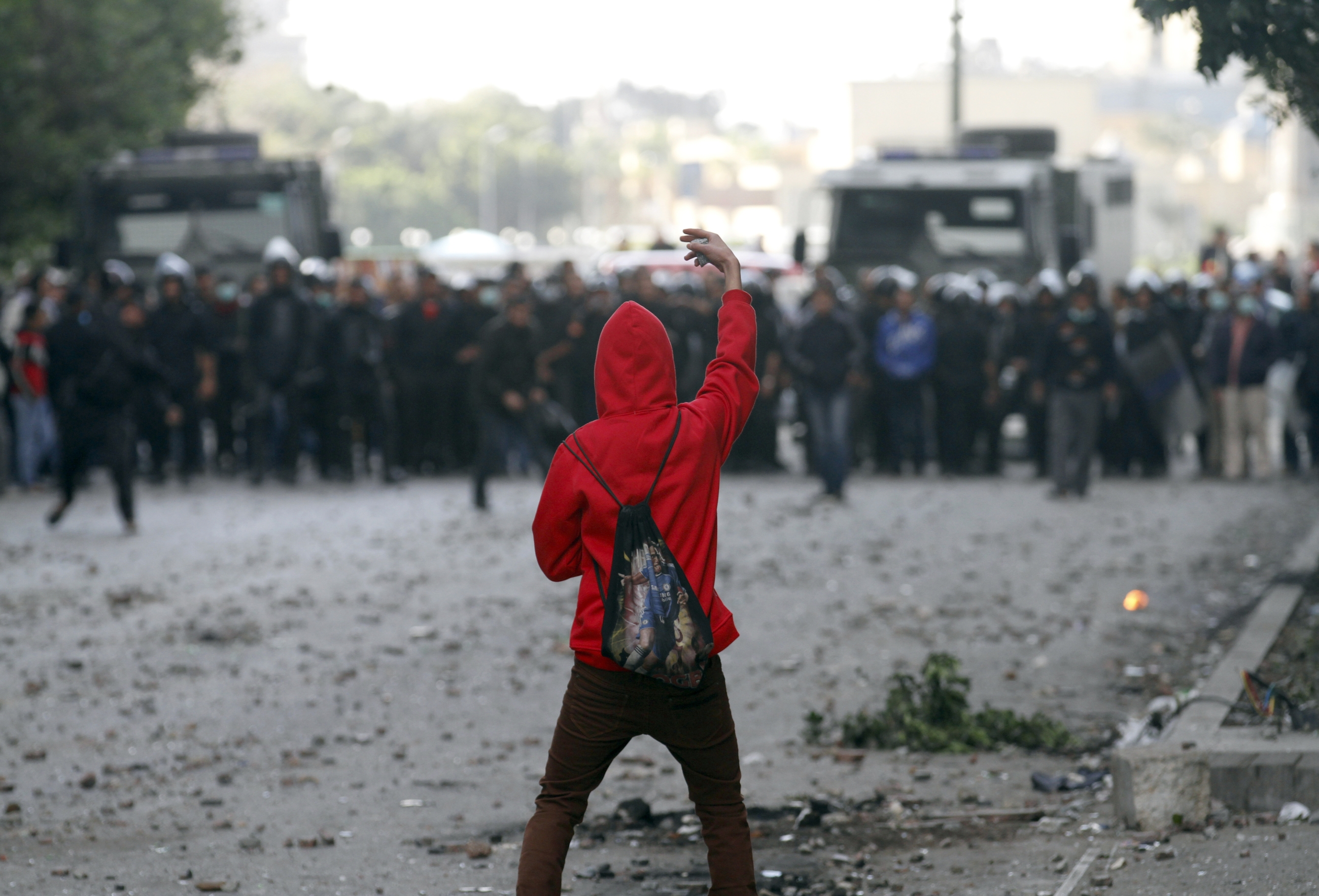
When Farid learned that his best friend of five years, Omar Mustafa, was dead, he hurried over to the Mustafa family home to pay his respects. When he arrived at the well-appointed home in Egypt’s coastal city of Alexandria, Farid found an officer from the national security services already there waiting. The officer had been sent to tell Omar’s parents that they could not hold a funeral service for their son. Eventually they persuaded the officer to agree to a compromise: a ceremony would be held at a neighbour’s home. During the funeral, two police cars were stationed in front of the house.
Omar, 22, died fighting somewhere in Libya last month. The details of his death are unclear: the group he was fighting with, how he was killed and why have yet to surface. Egyptian media suggested he was killed fighting for Islamic State on 22 November, but his family say even the date of his death has not been established. The only thing they know is that he travelled to Libya and never came back.
Omar's death - a tragedy for his family and friends - would not usually have made the headlines. Hundreds of Egyptians are thought to have left the country in recent years to join militants fighting in Syria, Libya and Iraq. With security services on high alert, the government last week implemented a law that requires all men between 18 and 40 to get security approval before travelling to countries like Libya, Iraq, Turkey and Qatar. But Omar’s story ended up splashed across the pages of Egyptian newspapers; the details of his life made the tale irresistible.
From secular revolutionary to ‘takfiri militant’
A photo of Omar in Egypt shows a young, handsome man with short hair and a closely-trimmed beard wearing a brown zip-up jumper at a demonstration in Alexandria. Last month another image of him was shared on social media – his dead body laid out on the ground and wrapped in a kafan, the white shroud traditionally used to cover the bodies of Muslims before burial.
Many Egyptian newspapers assumed that Omar had joined the Islamic State (an accusation his friends deny), which has recently established a foothold in the eastern town of Derna. The privately-owned daily, al-Masry al-Yaum, promised readers the salacious tale of “the young Alexandrian who left April 6 to join Islamic State.” The widely-read daily Yaum Sabaa spoke of Omar’s transition “from a young man full of belief in the goals of the revolution, shouting “Bread, freedom and social justice,” in Tahrir Square, to a takfiri militant fighting in the ranks of Islamic State."
Omar’s friends from his days in April 6, though, told MEE a more complex story; not of unfounded radicalism but of despair and growing disillusionment with a revolution they feel has come full circle. Talking over cups of coffee in a busy café in downtown Alexandria Farid, 22, and Hesham, 25 (not their real names), were still in shock at their friend’s death and wondering which of their circle would be next to dodge the security restrictions and join the fight abroad.
‘The revolution changed all of us’
At first Farid and Hesham were reluctant to talk to MEE, wary of Egyptian media who they said wanted only to "show things from their own perspective." But once they agreed to be interviewed the two were eager to share their memories of Omar and to try and piece together how a sociable law student at the prestigious Academy College in Alexandria ended up being killed on the battlefield in neighbouring Libya.
Like many activists in Egypt, Farid and Hesham have been keeping a low profile and trying to avoid the gaze of Egypt’s security services. Both said they no longer have links to April 6, the group they worked closely with during the 2011 uprising. Looking back on the heady days of the revolution, 25-year old Hesham described Mubarak’s ouster as a pivotal moment for his generation. “Omar didn’t have any radical beliefs, or even any belief at all, before the revolution. Even up until the 2012 presidential elections, he was just like the rest of us – he would drink alcohol, see girls, travel. It was just a normal life like everyone else’s. But the revolution changed all of us.”
Omar’s father, shocked by news of his son's death, also blamed the 2011 revolution, and his friends from April 6. “His father called me and cried,” recalled Farid. “He said: do you see what has happened? Before there were three of you, and now there are just two. I told you to stay away from the revolution.”
Separated by a deadly divide
Despite his father’s warnings in 2011, Omar and his friends did the opposite of stay away from the revolution, and from politics. Working in an Internet café and sometimes doing construction work to supplement his income, Omar led a comfortable life. Living in his family home, he owned a car and had a large, mixed group of friends. But politics was always a preoccupation.
“We were all involved in politics, but Omar started to work more with civil society organisations, and then with Islamic charities,” Hesham said. The 2012 presidential elections that brought Muslim Brotherhood leader Mohammed Morsi to power marked a turning-point for Omar. “He left his job, and started to move in a different direction from us. He really changed after the clashes that broke out marking 100 days of Morsi’s rule.” 110 people were injured in protests throughout the country that day as Morsi supporters clashed with opponents unhappy with their new president’s slow progress towards reform. Molotov cocktails were hurled in Cairo’s iconic Tahrir Square as supporters and opponents of Morsi clashed in the first bout of street violence since the president's election four months earlier in June 2012. “After that... Omar began to have a more Islamic mindset,” said Hesham.
Omar was never a member of the Muslim Brotherhood, though after his death much was made of the fact that his father was. However, he did become involved with the Hazimoun, a loose group of supporters of Hazem Abu Ismail, a lawyer and Salafi politician. Ismail, who was prevented from running as a presidential candidate in 2012 because of his mother's US citizenship, is currently serving a seven-year prison term on charges that he attempted to deceive the electoral commission. His supporters, who call themselves Hazimoun after their leader, are increasingly militant. According to Hesham, the first time Omar carried the black flag associated with jihad was at a demonstration organized by the Hazimoun.
Omar’s new direction left him and his old friends from April 6 on opposing sides of a potentially deadly divide. Omar took part in violent street clashes alongside Morsi supporters. He always worried, though, that he might end up fighting against his old colleagues from April 6. “He told us if he saw one of us he would run away, so as not to be involved in a clash with us,” Hesham said. “We weren’t really speaking at the time, but he would warn us not to show up at this or that clash. He was afraid that something might happen to us – he tried to protect us from what was going on.”
‘Let’s go and do something with our lives in Syria’
Omar’s radicalisation occured at a time when, according to his friends, politicians from the ruling Muslim Brotherhood were actively encouraging people to go and fight jihad in the region, while turning a blind eye to the stream of young men leaving to fight abroad. “The idea [of fighting abroad] was very attractive to all the frustrated young people,” Hesham said, “and Morsi’s people [the Muslim Brotherhood] were pushing for them to go and fight ‘alongside our brothers in Libya or Syria.'”
“During Morsi’s presidency it was easy to go [and fight abroad],” Farid explained – the five-hour drive across the border into Libya was a simple way to do it. But it was the war in Syria that had a real emotional pull for Omar and many others like him. “When we started constantly seeing people dying in Syria, we were all moved by it. Omar was very touched. Once, when we learned that Bashar [al-Assad] was using chemical weapons, Omar asked me to go with him to Syria.
“It was normal [for Egyptians to think of joining the fight in Syria.] We were all educated with the ‘pan-Arab’ ideas of Nasser.” Gamal Abdel Nasser, Egypt’s socialist president throughout the 1950s and 1960s, is remembered today as “the godfather of pan-Arabism,” an ideology that calls for countries of the Arab world to join forces.
For Omar, though, much of the impetus to fight abroad came from one individual: 'Mahmoud,' a member of Hazimoun who supported the idea of fighting abroad and had contacts within al-Qaeda, had a significant influence on Omar, according to Hesham. "Mahmoud never went out to the streets [to protest] – he just sat at home and posted things on Facebook. But he started introducing Omar to more and more people while Omar was renovating his younger brother’s house," said Hesham.
At some point in 2013, Hesham said, Omar decided to take the next step, travelling to al-Arish in the restive province of North Sinai for a few weeks of combat training with a group of militants active there. Most of the people he trained with ended up fighting in Syria. Going to Syria was always Omar’s aim, too – but while he was training in Sinai, Farid said, Syria’s borders were closed, making it much more difficult to get to. “That’s why he went to Libya for jihad,” said Farid.
“We had talked before about going to Syria to fight for the revolution. All that people were doing here in Egypt was killing each other - we were so frustrated. So we thought: let’s go and do something useful with our lives in Syria," said Hesham, who later backed away from the idea and remained in Egypt.
‘He needed a real enemy to fight’
Frustration with the outcome of the 2011 revolution is something Farid says was felt by people across Egypt. “At that time, we all lost hope in the country. It was a terrible situation,” he said. The disillusionment was heightened by a polarising rhetoric that divided Islamists from more secular revolutionaries. Omar was deeply affected by a December 2012 speech by the Salafist preacher at an Alexandria mosque, in which he denounced 'secular revolutionaries,' Omar's old friends. Later, Omar would find himself separated from his family too.
For both Omar and Farid, divisive rhetoric like that of the Alexandrian preacher undermined family life. “Both of us lived in Muslim Brotherhood households – it was a very stressful time. Omar always stood by his beliefs, even if everybody was against him. It caused problems with his family.” Omar would eventually move out of the family home after coming into conflict with his father.
According to Hesham, the growing divide between Islamist and secular revolutionaries and his inability to reconcile these two parts of his identity led to Omar’s decision to fight abroad. “The way I see it is that he left because he wanted to fight, but not against us. The Hazimoun were telling him that his old contacts [from the revolution] had become his enemies - but he still considered us friends. He needed a real enemy to fight, and it could not be us - maybe this is one of the reasons why he left to fight abroad.”
Even after Omar left to fight in Libya in 2013 he continued to stay in touch with Hesham and Farid. In the summer of 2014 he called Hesham to congratulate him on his recent engagement. As before the pair talked Egyptian politics and also discussed the emergence of the Islamic State group in Syria and Iraq. “He was so against [the Islamic State] – he said their supporters were lost, and that they were following the wrong path towards building an Islamic country.”
A few weeks later the two had their last conversation. Omar had announced on Facebook that he was soon to be married in Libya. Speaking to Hesham by telephone later that day, Omar confided that he was growing uneasy with his new life. “He said he missed his friends and family, and he was very tired. He said he wanted to come back to Egypt, but he knew he couldn’t – Egypt's National Security would have taken him away.”
Today Omar’s friends worry that media coverage of his death is exacerbating deepening divisions in Egypt – divisions they say led Omar to travel to Libya in the first place.
“Journalists wrote that Omar was a member of Islamic State,” Farid said. “Thanks to these articles, National Security were able to connect the dots from April 6 to the Muslim Brotherhood and finally to Islamic State. They are trying to show that even activists from April 6 are terrorists who are trying to blow the country up.”
Omar’s death last month has left his friends dejected. “We are all very tired,” Hesham said, “but we really felt in our hearts everything that happened [to Omar].” Shortly after Omar’s closely-guarded funeral, Farid received a call from an officer working with Egypt’s National Security services. “He wanted to know the details of Omar’s case – I told him that Omar was dead and his secrets died with him.”
Additional reporting by Giulia Bertoluzzi and Costanza Spocci
Names and details mentioned in this story have been changed for security reasons
New MEE newsletter: Jerusalem Dispatch
Sign up to get the latest insights and analysis on Israel-Palestine, alongside Turkey Unpacked and other MEE newsletters
Middle East Eye delivers independent and unrivalled coverage and analysis of the Middle East, North Africa and beyond. To learn more about republishing this content and the associated fees, please fill out this form. More about MEE can be found here.


